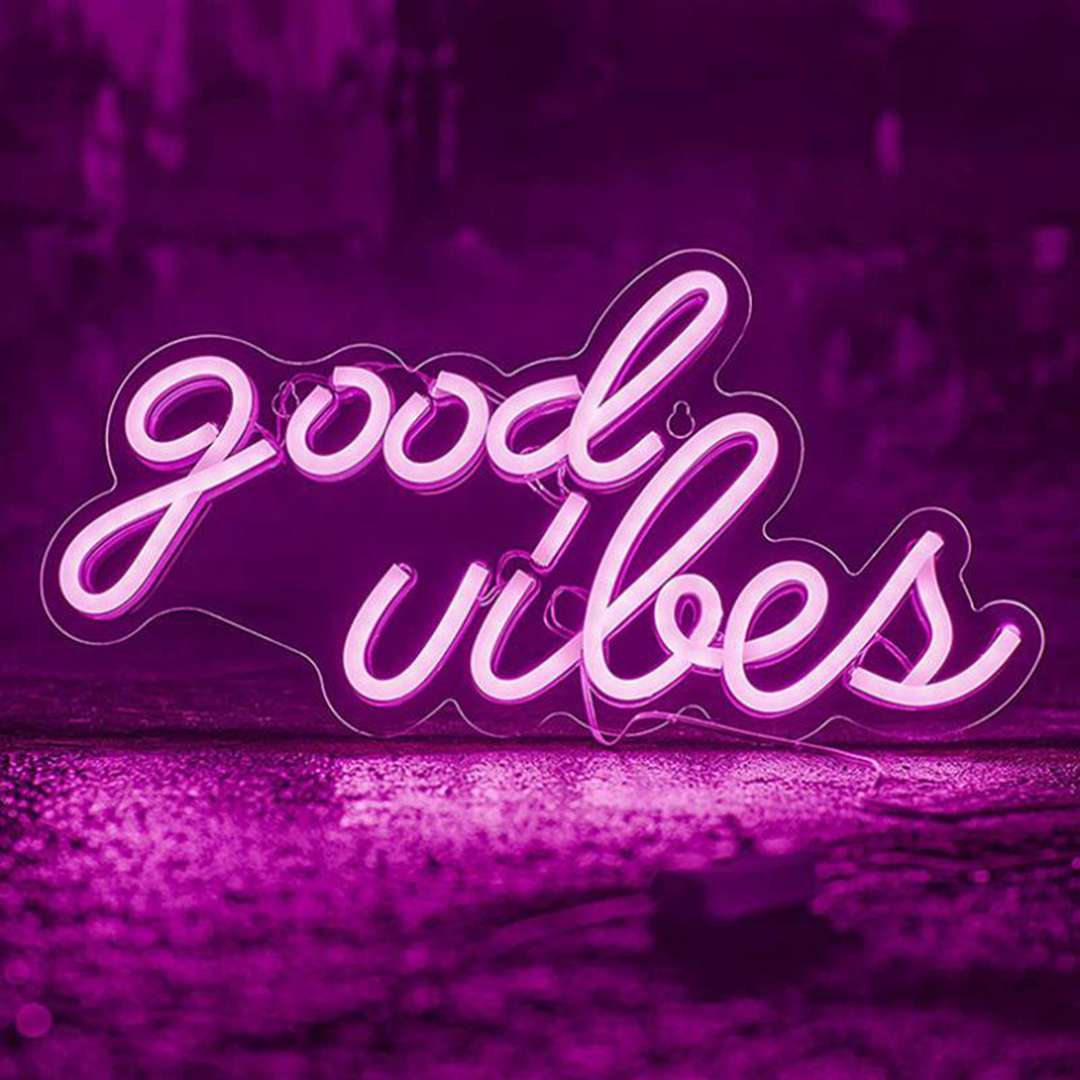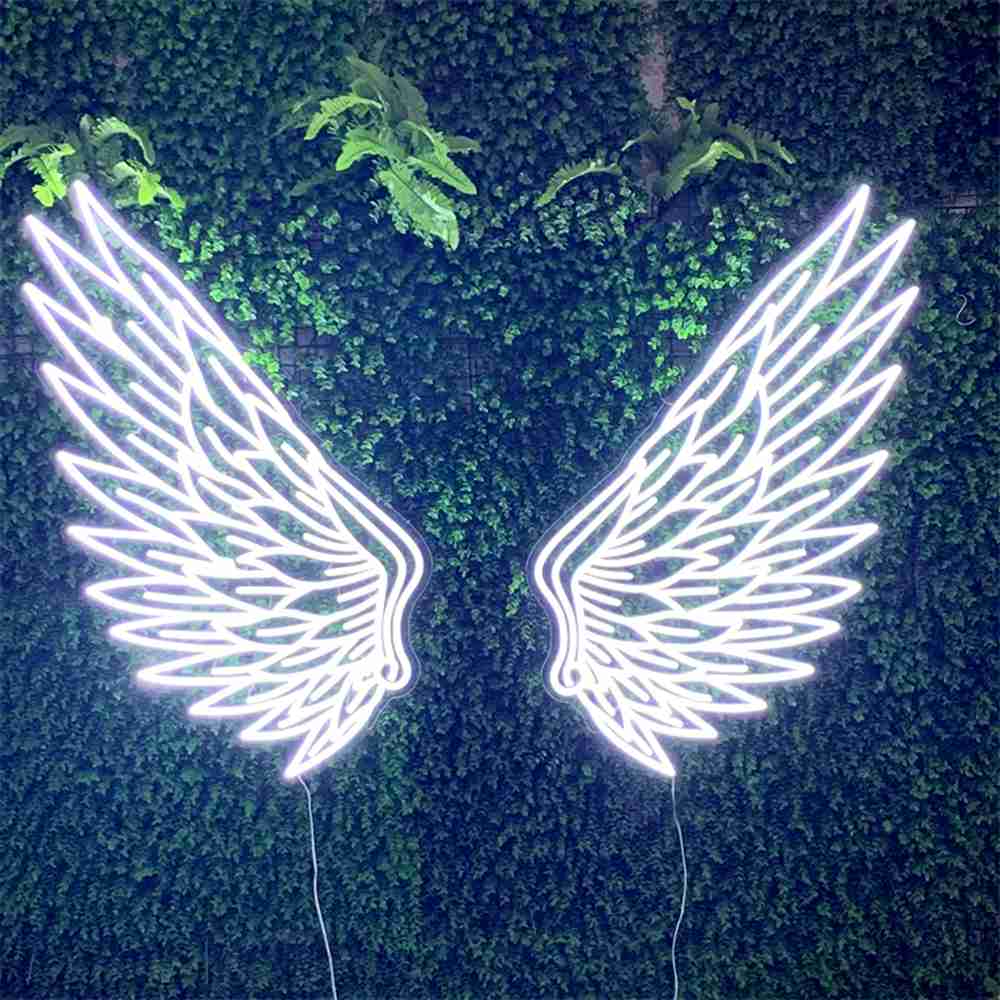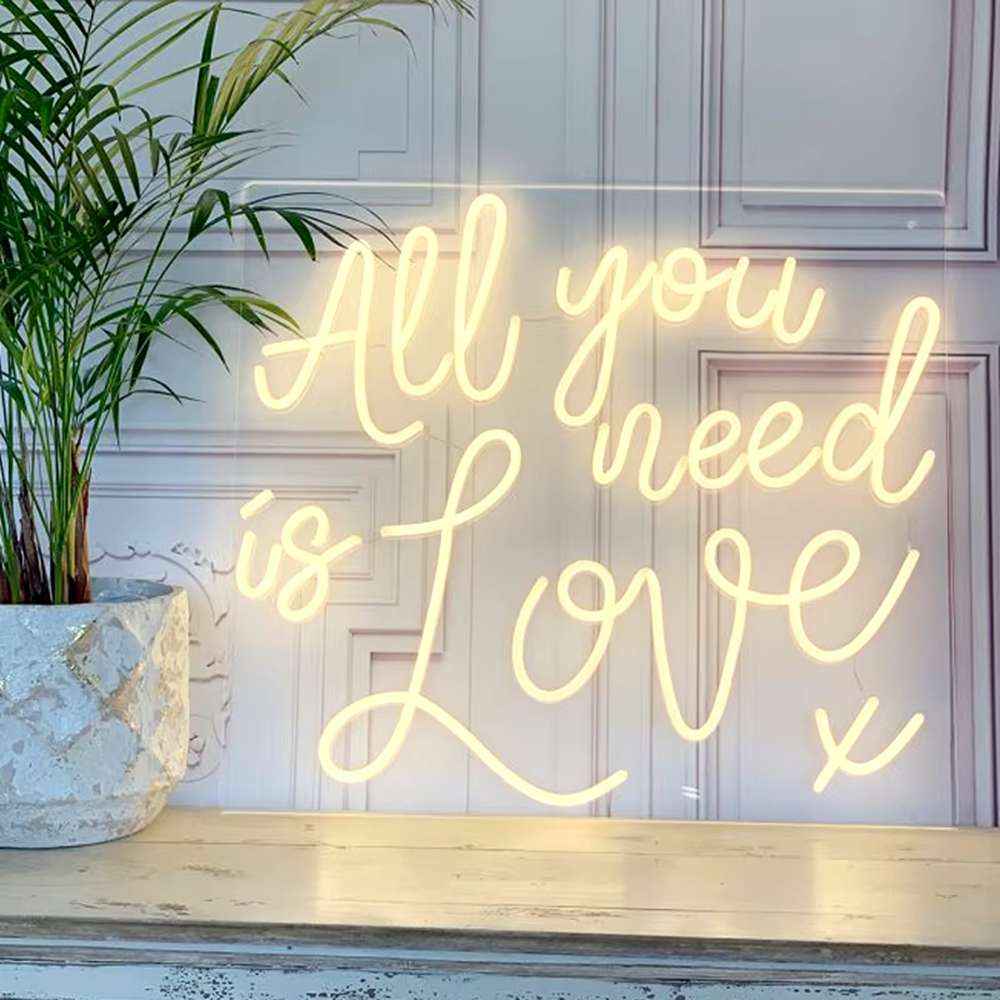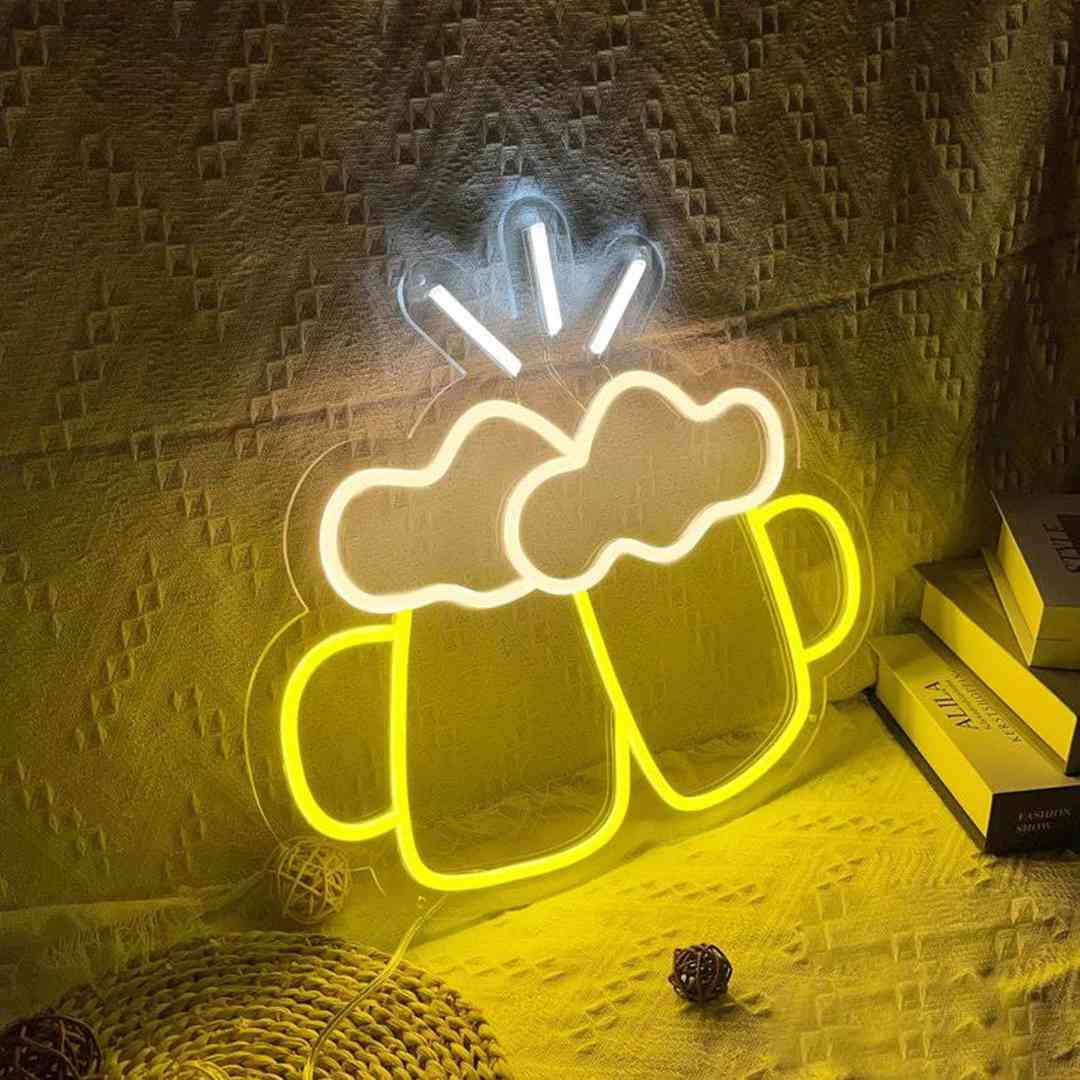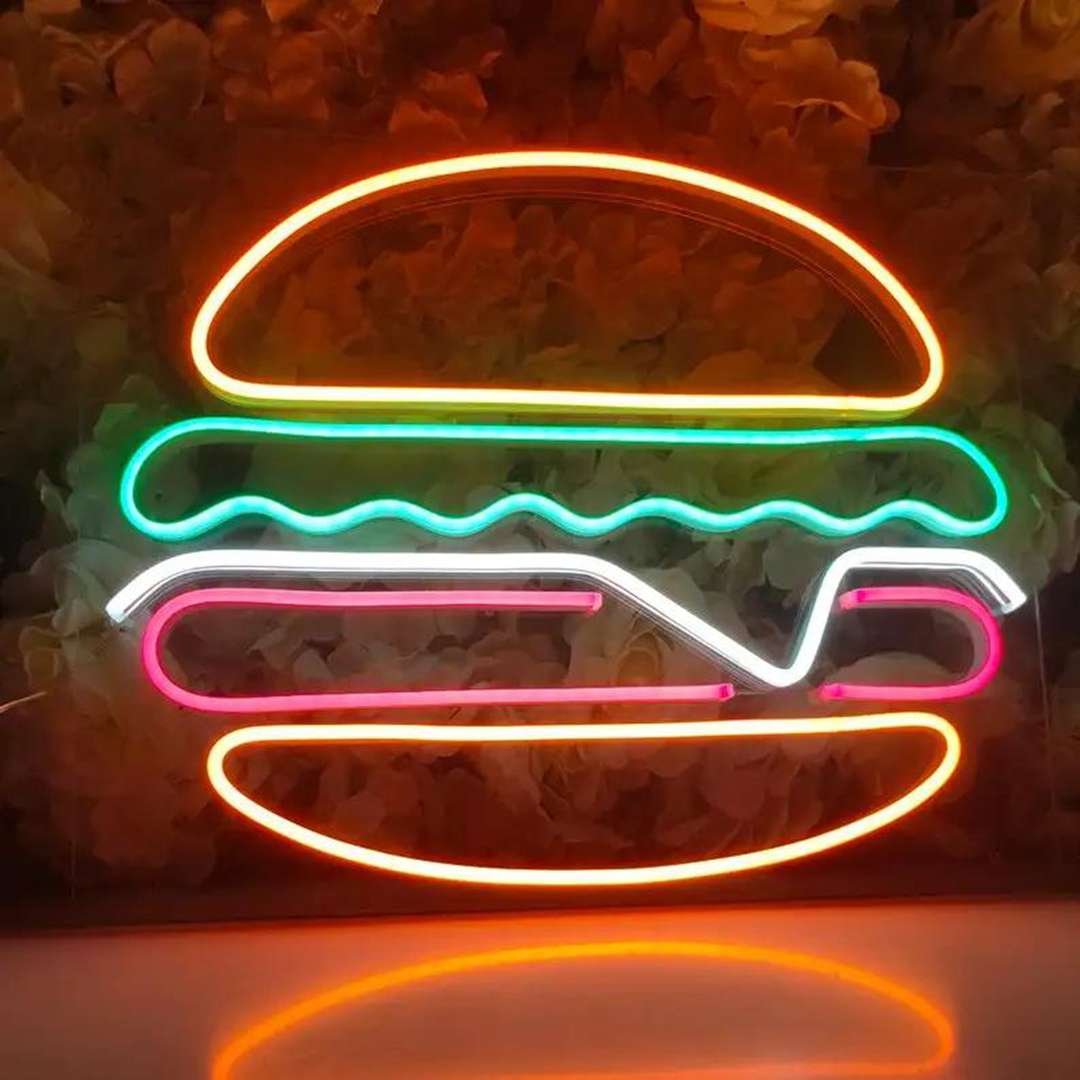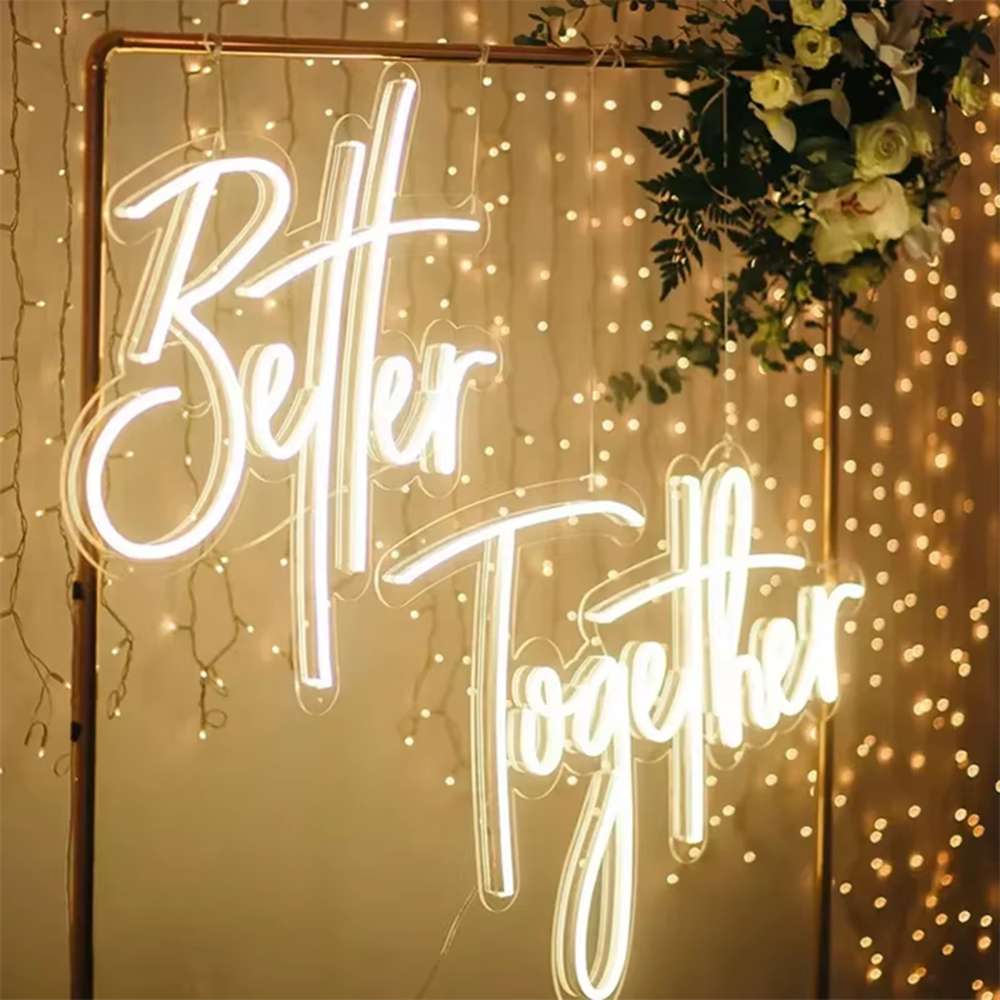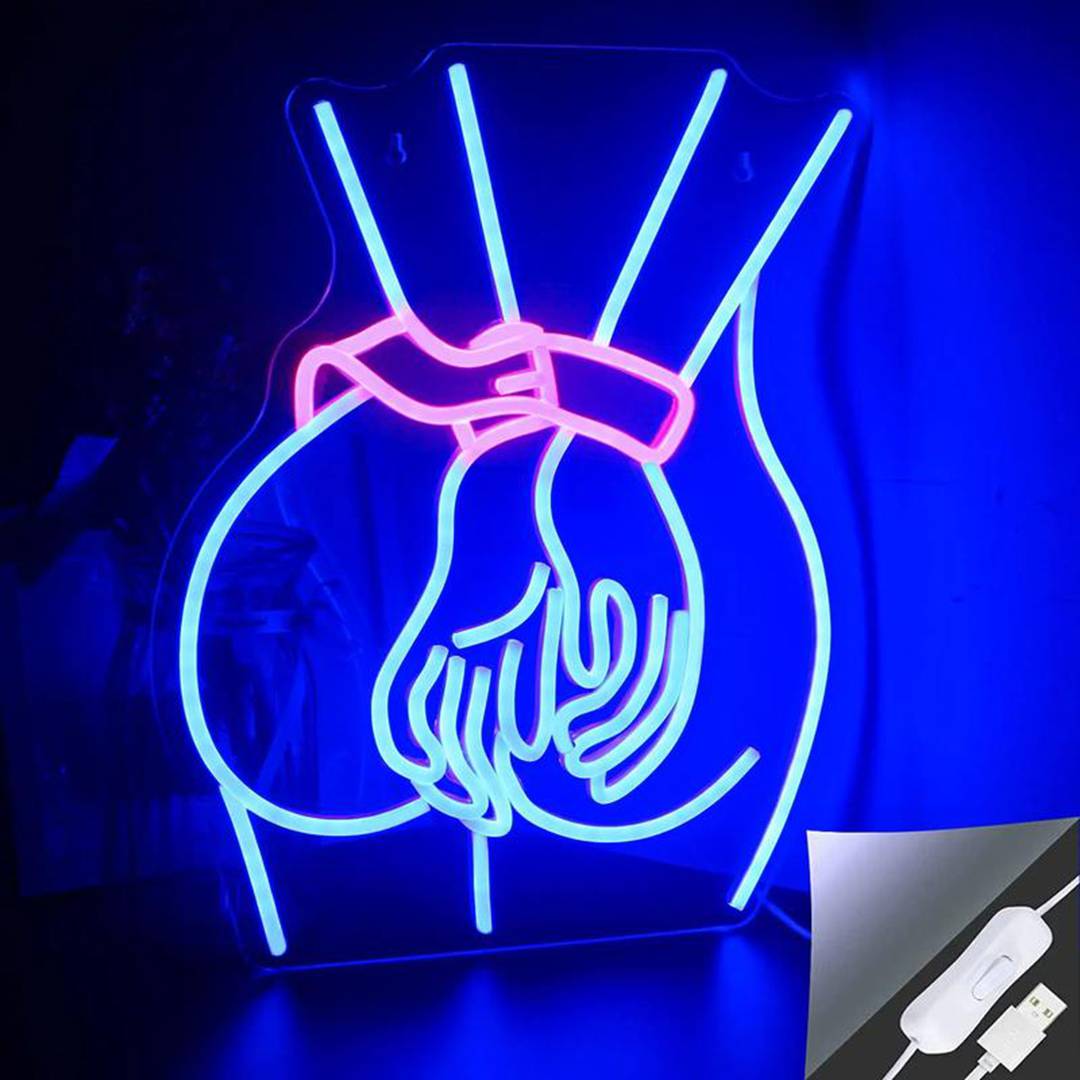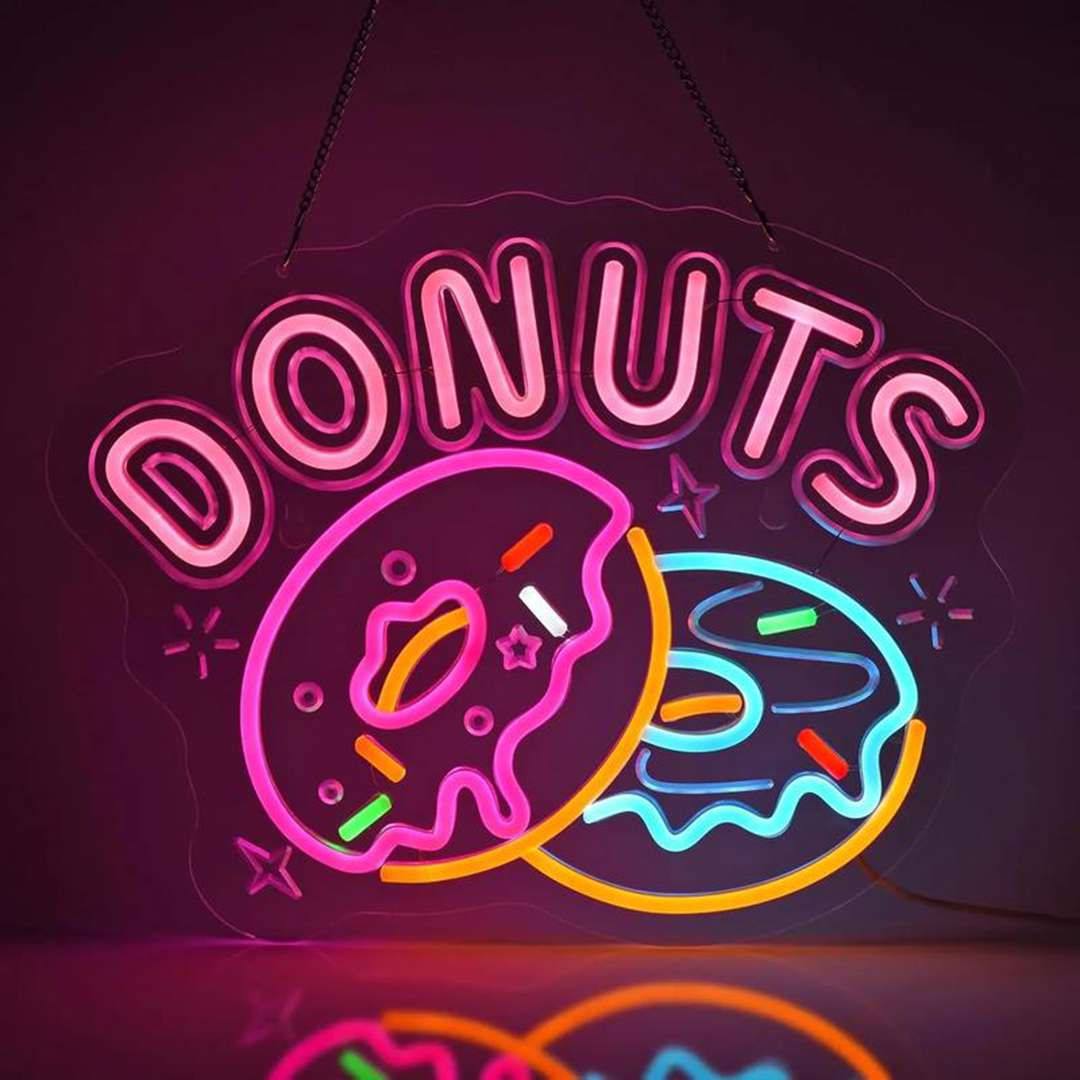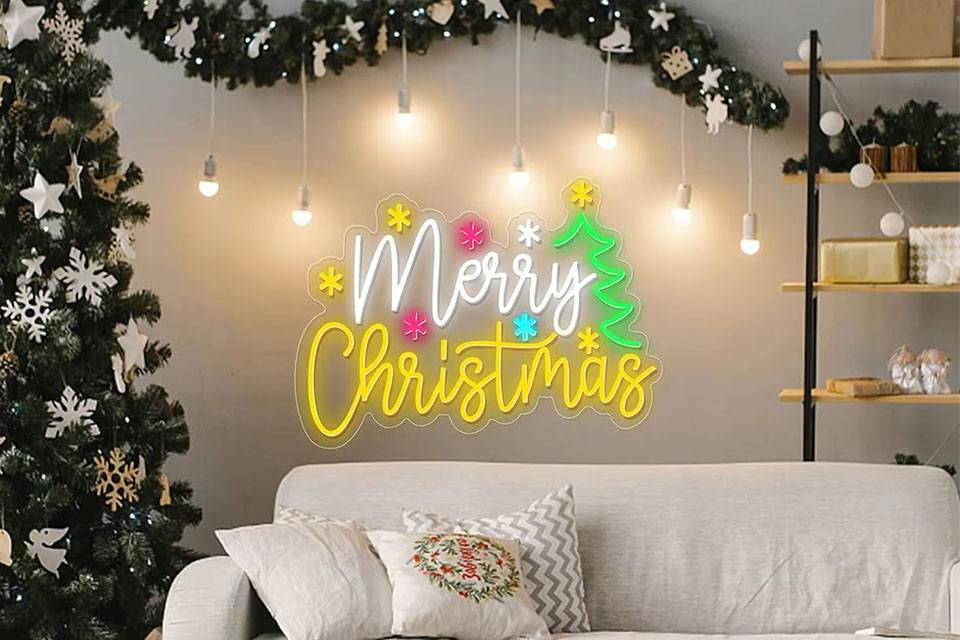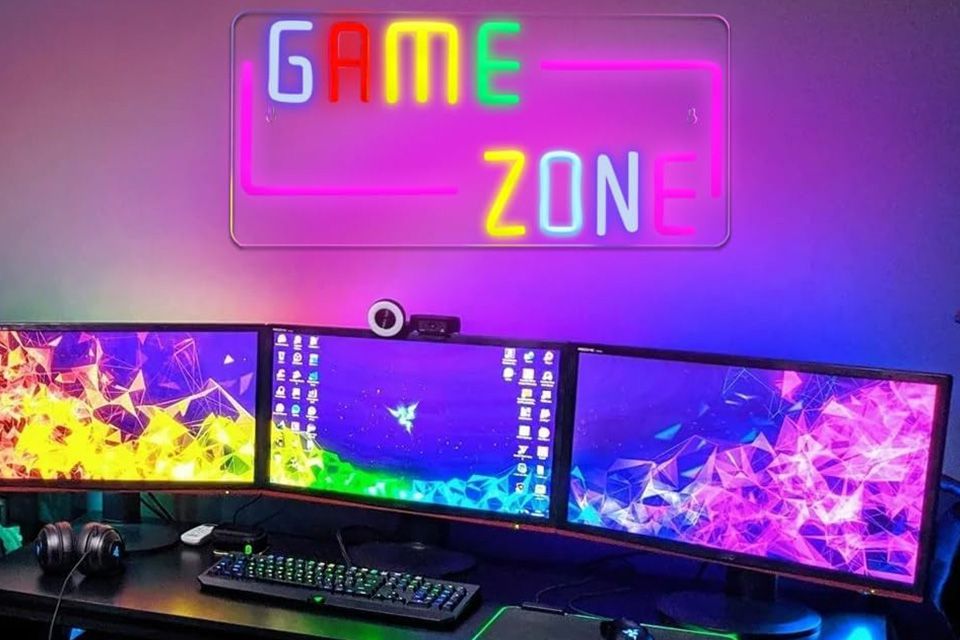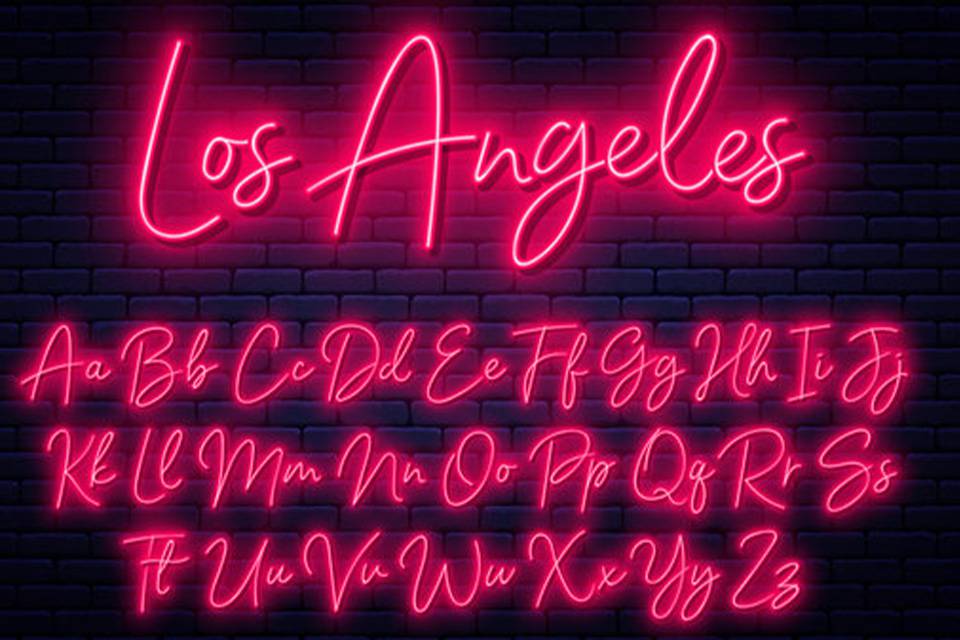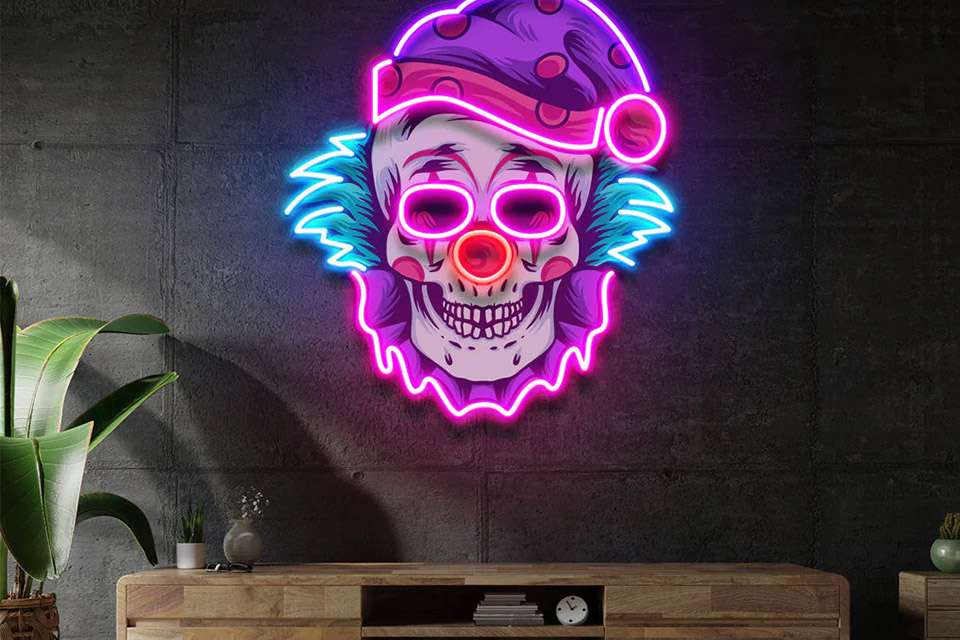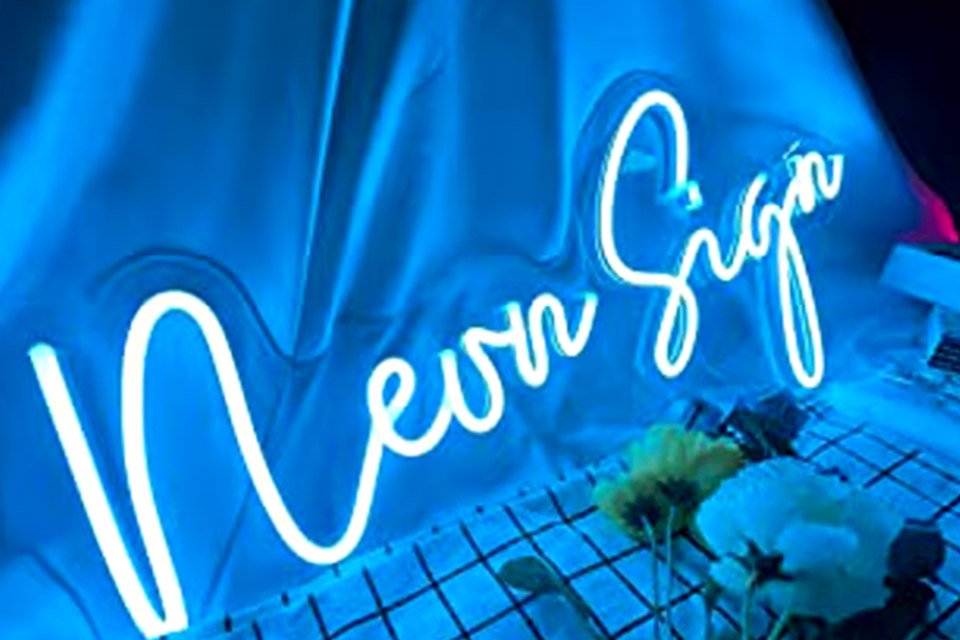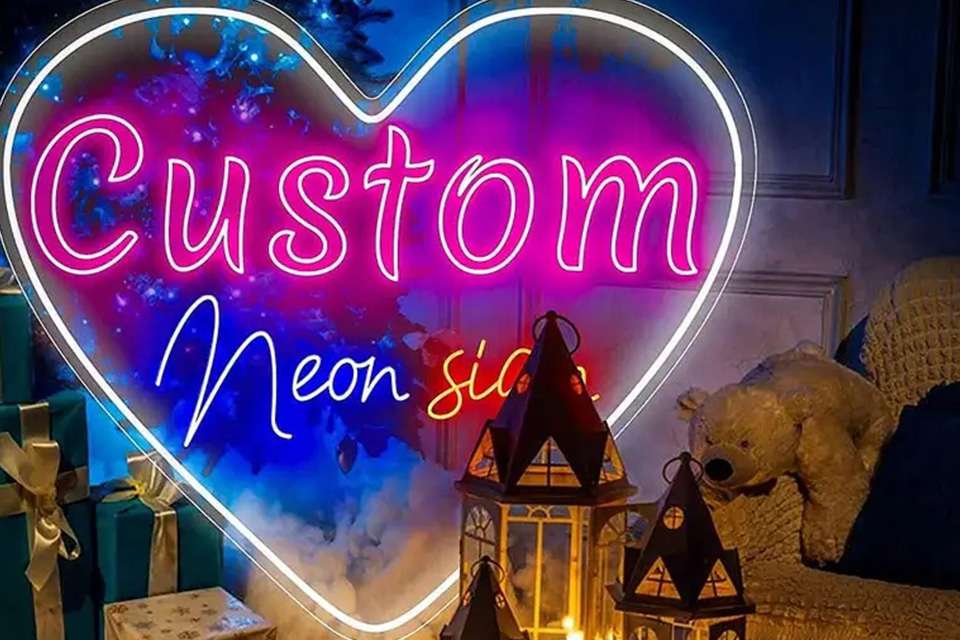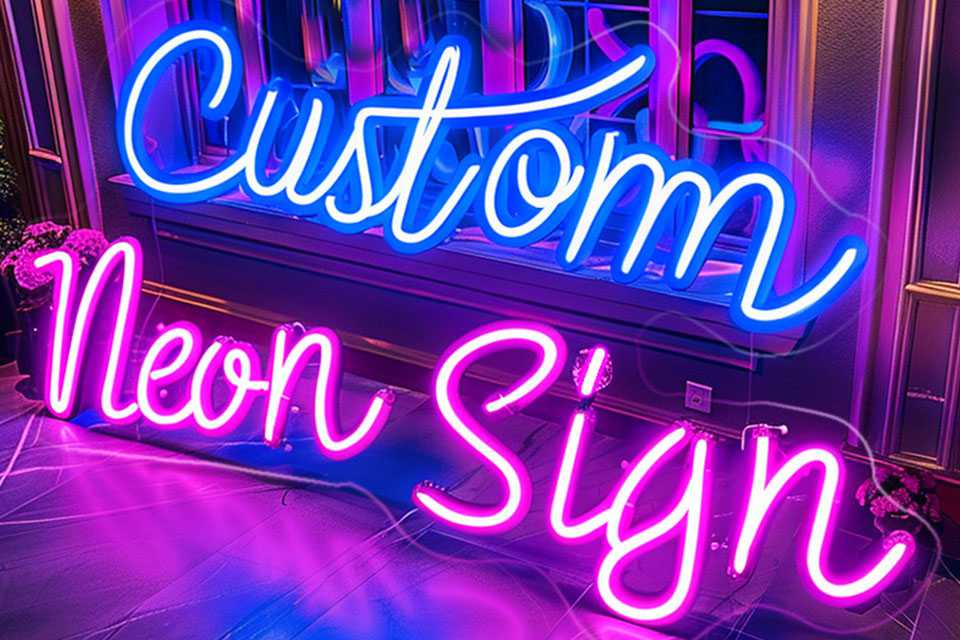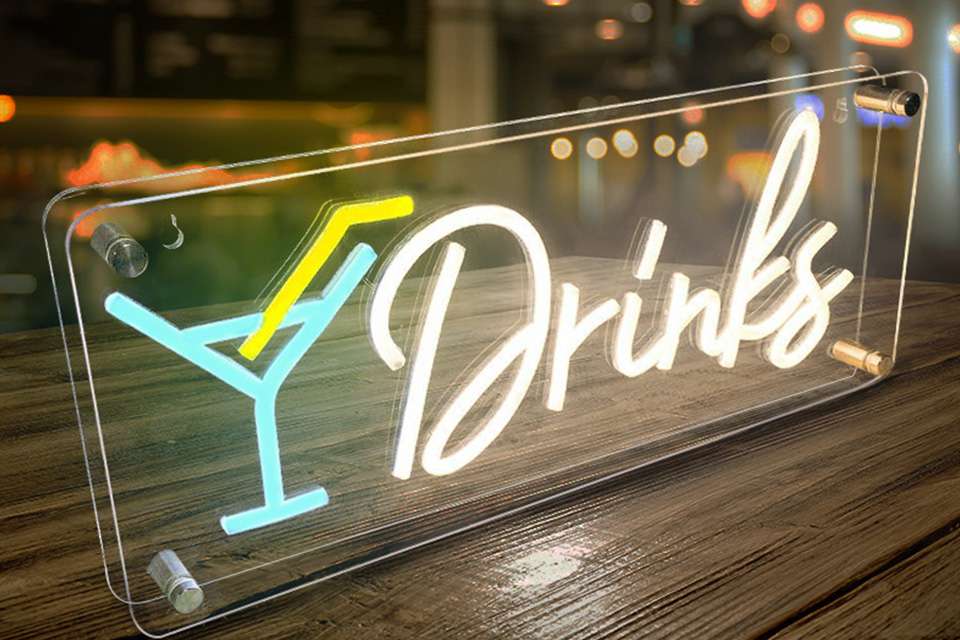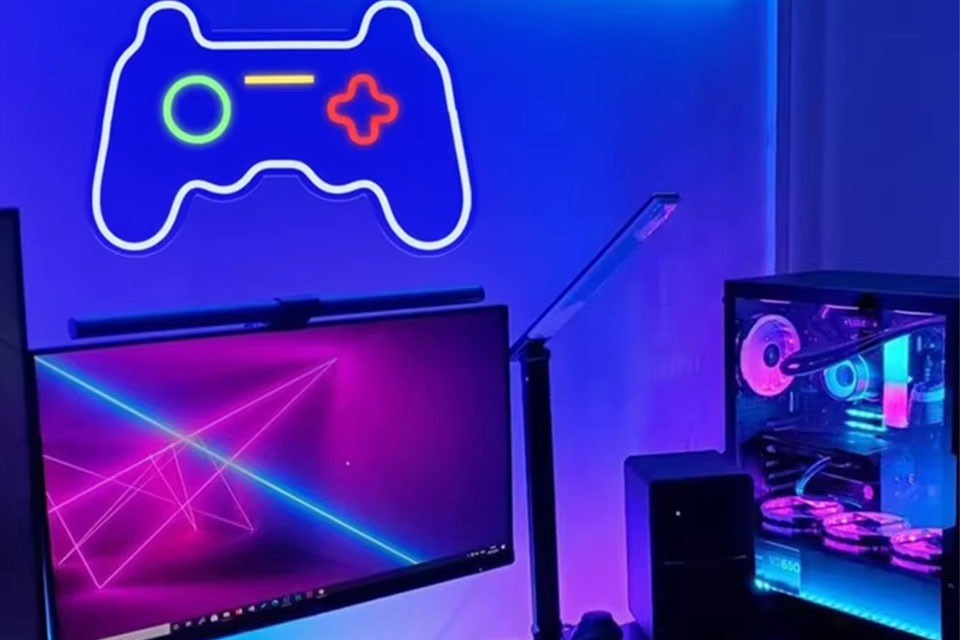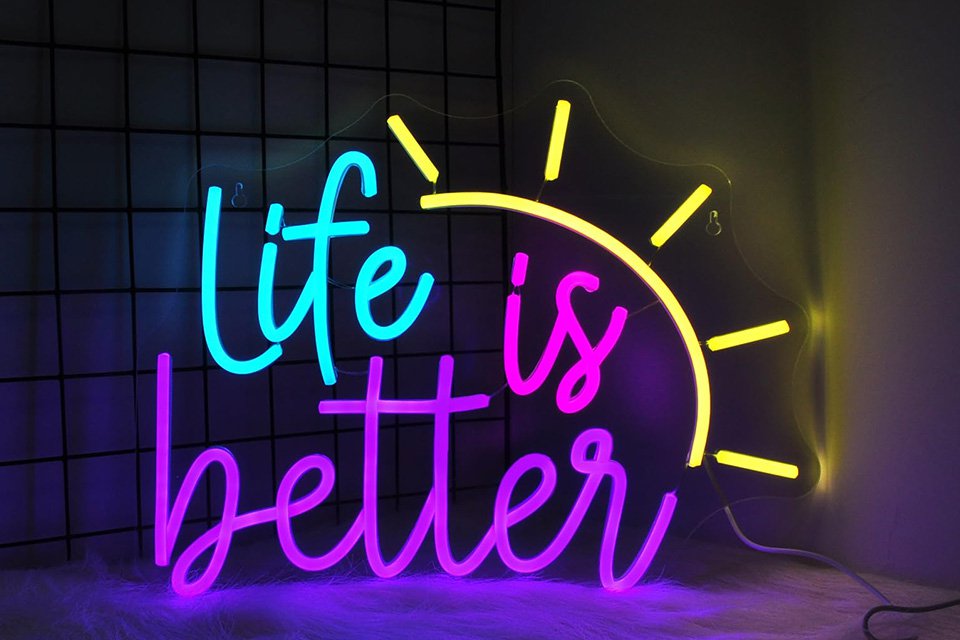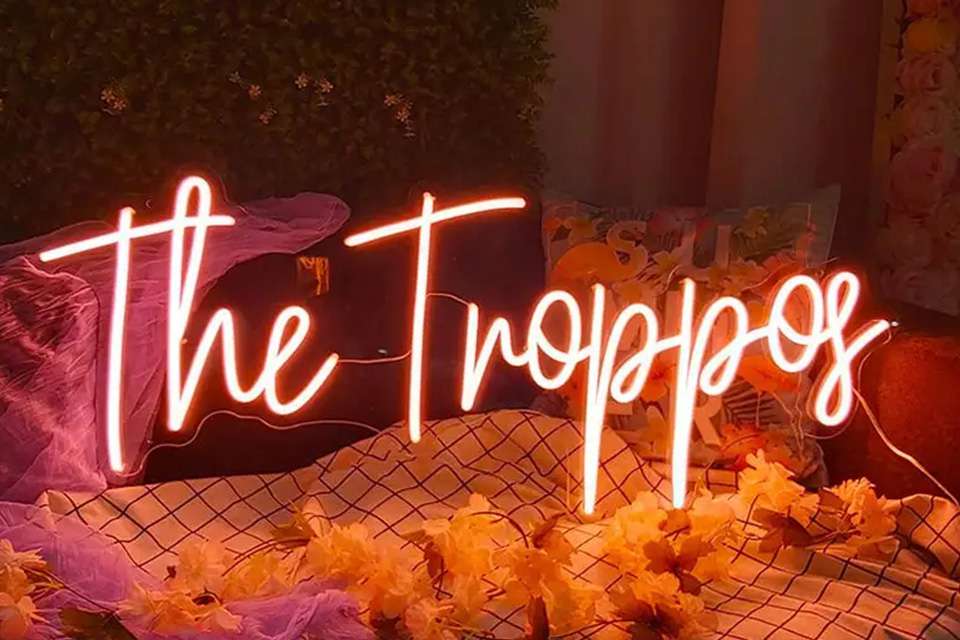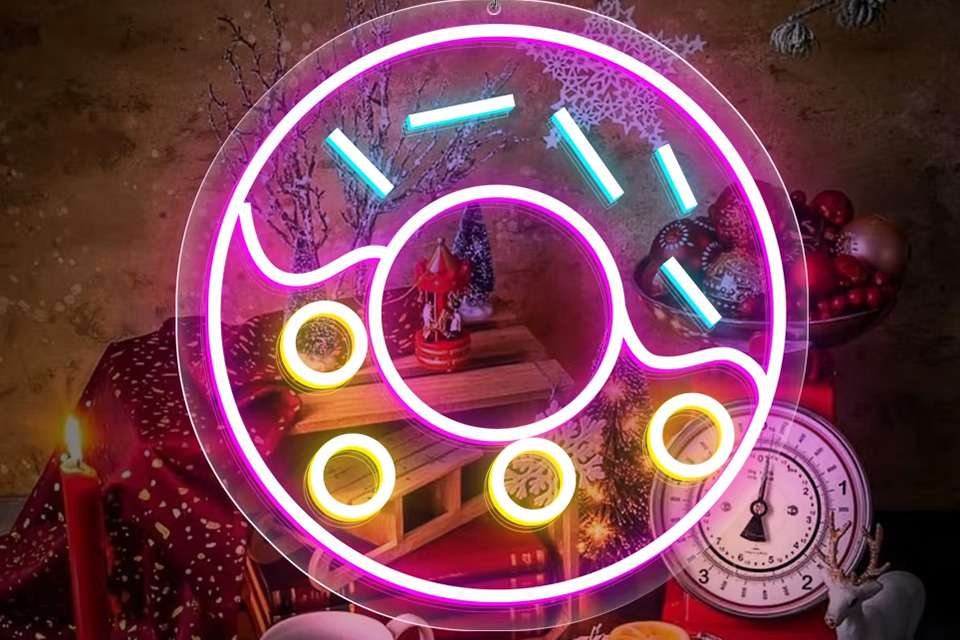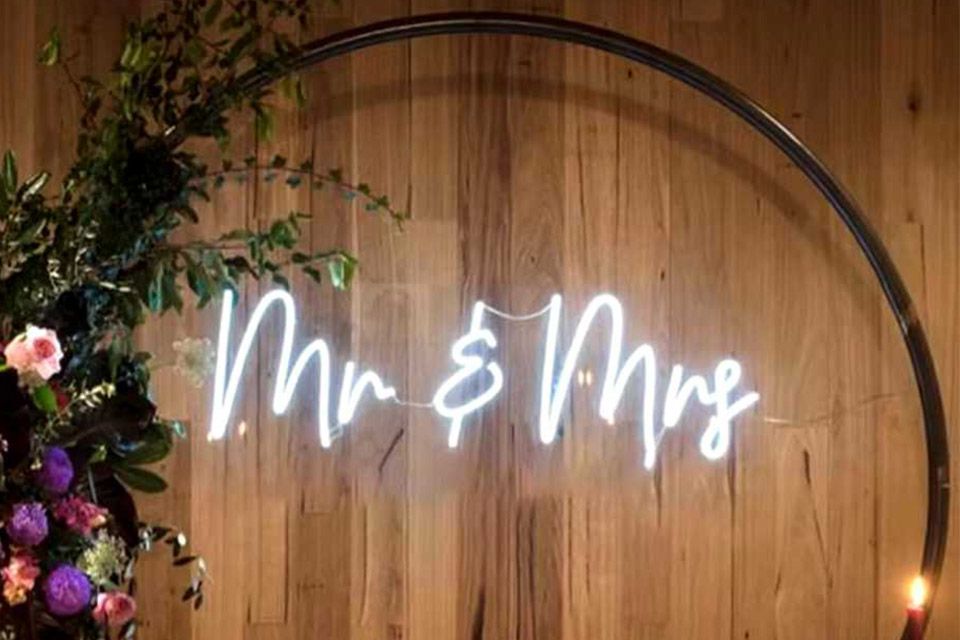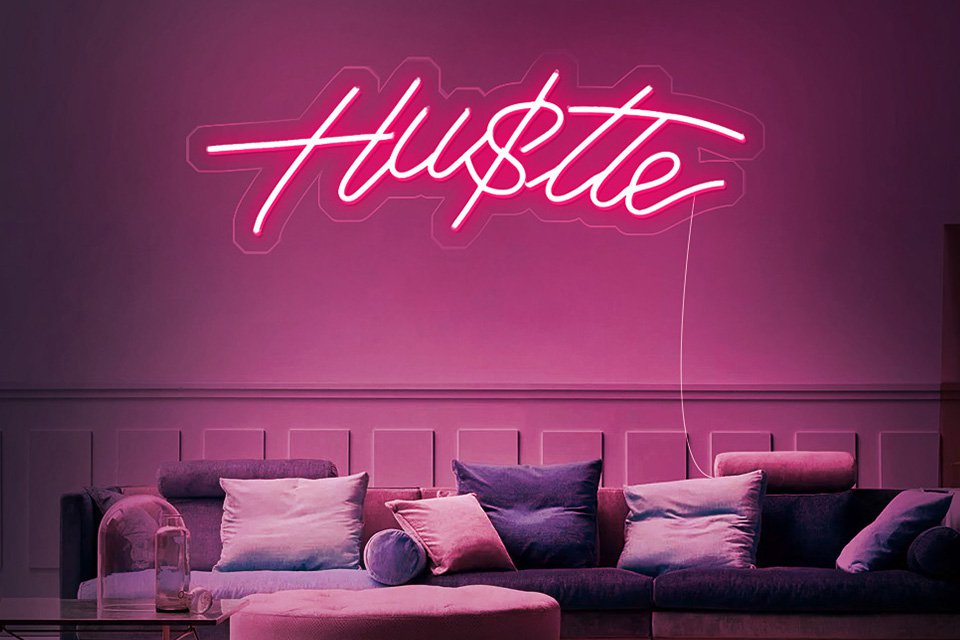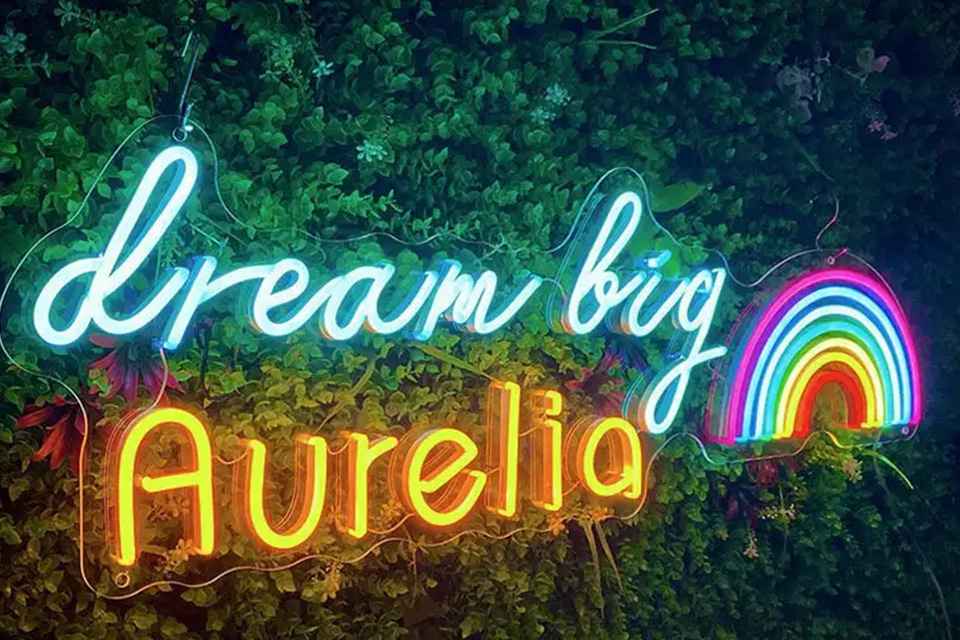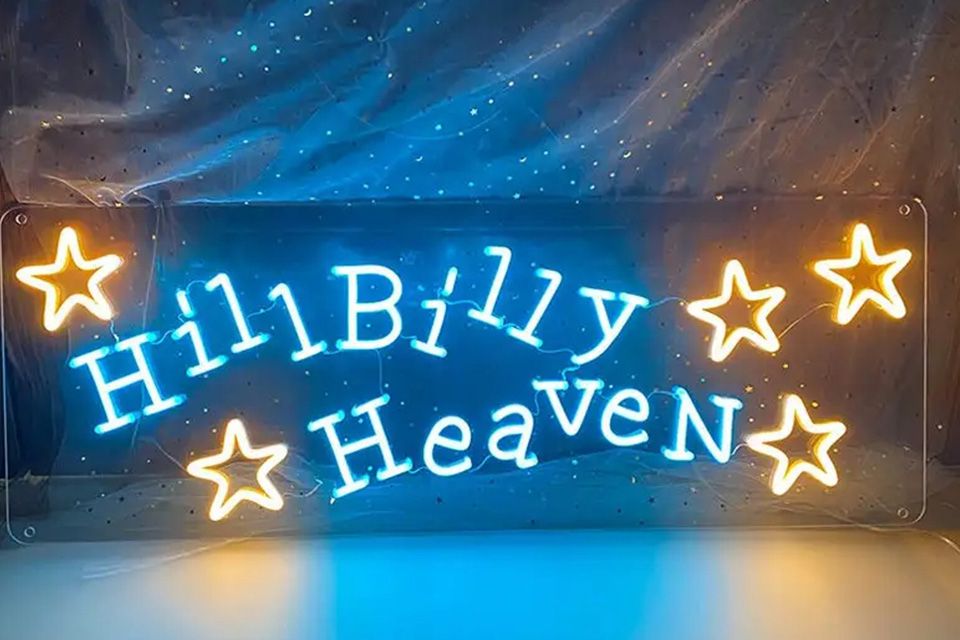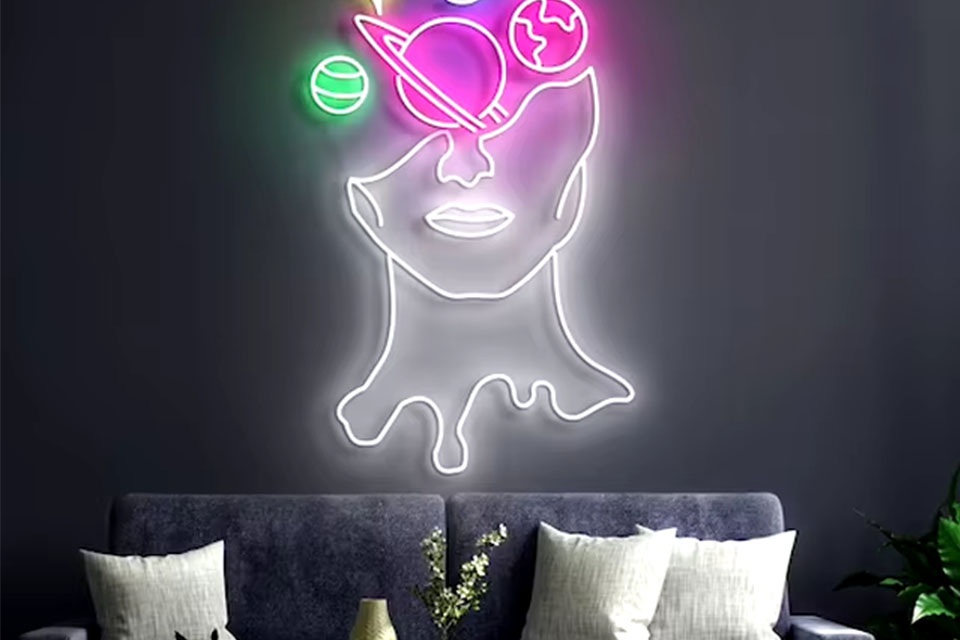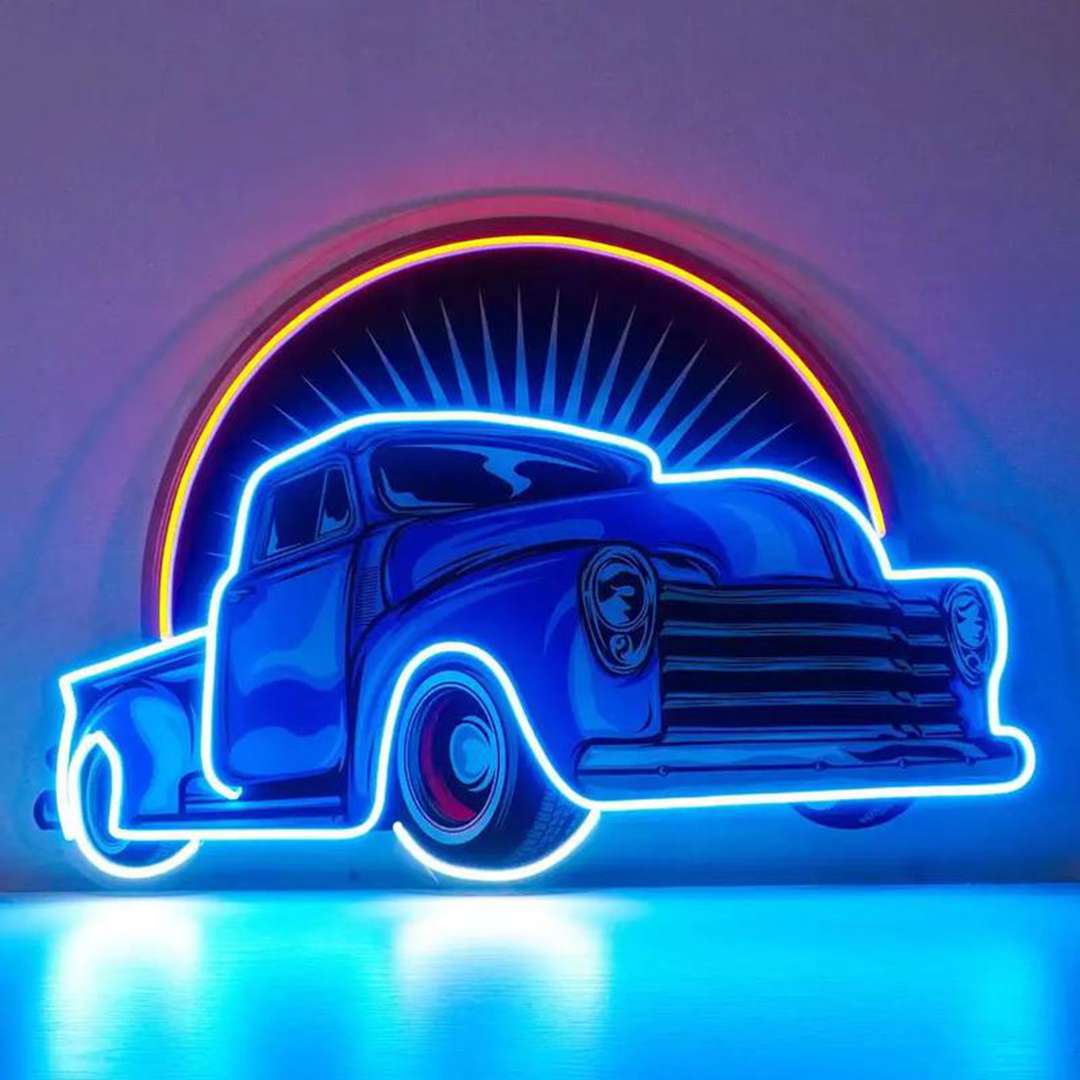
LED Neon: Best Way to Replace Neon
Table of Contents
This article dives into the world of neon signs, comparing traditional neon signs with their modern counterpart, LED neon. We’ll explore why LED neon is rapidly becoming the go-to choice for businesses and individuals alike, and why this piece is a must-read for anyone considering investing in illuminated signage. Whether you’re looking to enhance your business’s signage or add a touch of unique style to your home decor, understanding the benefits of LED neon over classic neon sign can save you money, reduce maintenance, and offer greater design flexibility.

1. What is a Traditional Neon Sign?
Neon signs have been a staple in commercial signage and advertising for over a century. These signs are created using glass tubes filled with neon gas or other noble gases. When an electric current passes through the gas, it emits a bright, vibrant light. This process, while visually appealing, requires a high voltage and a significant amount of energy.
Traditional neon signs are known for their distinctive glow and have a nostalgic appeal. However, their fragility, high energy consumption, and complex installation process make them less practical in today’s fast-paced, environmentally conscious world. Glass neon signs are also more susceptible to damage from temperature fluctuations and physical impacts. Neon signage is one of the most compelling types of signage.
2. What is an LED Neon Sign?
LED neon is a modern alternative to traditional neon signs. Instead of using gas-filled glass tubes, LED neon signs utilize LED technology to mimic the look of classic neon. These signs employ strip lights or LEDs encased in a flexible, durable material like acrylic or silicone, which diffuses the light to create a continuous, smooth glow.
LED neon signs offer several advantages over their traditional neon counterparts. They are more energy-efficient, durable, and versatile. LED neon lights can be easily bent and shaped, allowing for intricate designs and custom LED neon signs that were previously difficult or impossible to achieve with traditional neon tubes. LED sign is a great way to add visually appealing elements to signage for your business.
3. How Does LED Neon Compare to Traditional Neon Signs in Terms of Energy Efficiency?
| Feature | Traditional Neon | LED Neon |
|---|---|---|
| Energy Use | High | Low |
| Voltage | High (3,000-15,000V) | Low (12V or 24V) |
| Lifespan | 10,000-20,000 hours | 50,000+ hours |
| Heat Emission | High | Low |
| Environmental Impact | Higher due to energy consumption | Lower due to energy efficiency |
Energy efficiency is one of the most significant advantages of LED neon over traditional neon. LED neon signs consume significantly less energy than traditional neon lights. This difference in energy consumption is because LEDs are highly efficient at converting electricity into light, while traditional neon relies on the excitation of gas atoms, a process that generates considerable heat and requires a higher voltage.
LED neon lights offer a much longer lifespan, often exceeding 50,000 hours, compared to the 10,000-20,000 hour lifespan of traditional neon. This enhanced energy efficiency not only reduces electricity bills but also contributes to a smaller carbon footprint, making LED neon an energy-efficient alternative for environmentally conscious businesses and individuals. The advantages of LED neon are the reason why LED neon is becoming preferred choice for signage options.
4. Is LED Neon More Cost-Effective Than Traditional Neon?
When considering the cost of signage, it’s important to look beyond the initial purchase price. While traditional neon signs may have a lower upfront cost in some cases, LED neon proves to be more cost-effective in the long run. LED neon’s superior energy efficiency translates to significant cost savings on electricity bills over the lifespan of the sign.
Advantages of LED neon is lower maintenance requirements. Traditional neon signs, with their fragile glass tubes and high-voltage components, are prone to breakage and require specialized repairs. LED neon, on the other hand, is much more durable and requires less maintenance, resulting in lower maintenance costs over time. The long-term cost savings associated with energy efficiency and reduced maintenance make LED neon a smart investment for any business looking to optimize its signage budget.
5. What are the Installation and Maintenance Differences Between Neon and LED Neon?
Installation of traditional neon signs is a complex process that typically requires professional installation by a skilled technician. The delicate glass tubes must be carefully handled and mounted, and the high-voltage electrical connections must be made with precision to ensure safe operation. Traditional neon lights require special handling because of glass tubes filled with gas.
LED neon, in contrast, offers a much simpler and safer installation process. The flexible tubing can be easily mounted on various surfaces using clips, adhesive, or channels. The low-voltage power supply of LED neon eliminates the risks associated with high-voltage wiring, making it safer for both installation and operation. This ease of installation also means that LED neon signs can be easily relocated or reconfigured, offering greater flexibility for businesses that may need to update their signage layout in the future.
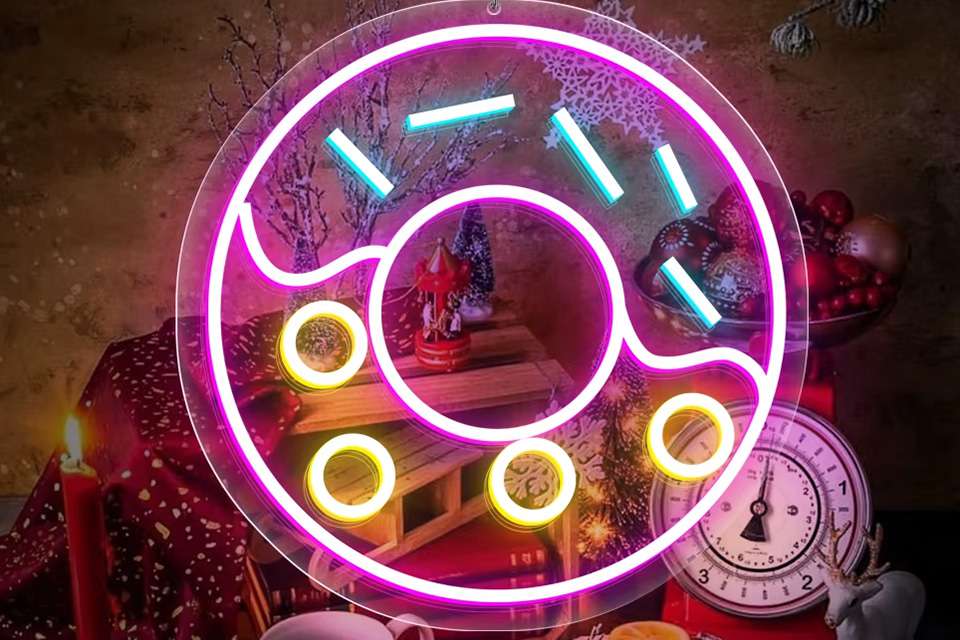
6. Can Custom Neon Signs Be Made with LED Technology?
Absolutely! One of the major advantages of LED neon is its versatility in creating custom signs. Traditional neon signs are limited by the physical constraints of bending glass tubes. While skilled artisans can create intricate designs with glass neon, the process is time-consuming and expensive.
Custom LED neon offers virtually limitless possibilities for customization. The flexible tubing can be bent into any shape or letter, allowing for intricate designs, logos, and even artistic creations. Custom LED neon sign allows personalization of restaurant signs and other business signs. LED neon lights also come in a wide range of colors, and some even offer color-changing or dynamic lighting effects. This ability to create personalized neon designs makes LED neon a popular choice for businesses seeking unique, eye-catching signage that reflects their brand identity. Custom neon sign might be a perfect sign for your business. Neon signs can be made from LED neon easily.
7. Which is Better for Outdoor Use: Neon or LED Neon?
| Feature | Traditional Neon | LED Neon |
|---|---|---|
| Weather Resistance | Moderate | High |
| Temperature Tolerance | Limited | Wide |
| Impact Resistance | Low | High |
| UV Resistance | Moderate | High |
| Water Resistance | Requires protective enclosures | Often waterproof or water-resistant |
For outdoor use, LED neon has clear advantages over traditional neon. Traditional neon signs, while capable of withstanding some outdoor conditions, are susceptible to damage from extreme temperatures, moisture, and physical impacts. Outdoor neon signs can be made from glass, but it is not the best option.
LED neon is designed to be durable and weather-resistant. The acrylic or silicone casing protects the LEDs from the elements, making them suitable for a wide range of outdoor environments. LED neon lights offer resistance to temperature fluctuations, moisture, and UV radiation. Additionally, the solid-state nature of LEDs makes them much more resistant to impacts than fragile glass neon tubes. This superior durability makes LED neon the preferred choice for outdoor events and storefronts signage exposed to harsh weather conditions. The ability to resist damage caused by various factors makes LED neon a perfect choice for outdoor use.
8. What are the Design Options With LED Neon for Interior Design?
LED neon isn’t just for businesses; it’s also a fantastic way to add a touch of unique style to your home decor. The versatility of LED neon allows for a wide range of design options, from subtle accents to bold statement pieces.
Here are some ideas for incorporating LED neon into your interior design:
- Wall Art: Create custom LED neon artwork featuring your favorite quotes, shapes, or abstract designs.
- Accent Lighting: Use LED neon strips to highlight architectural features, shelves, or furniture.
- Mood Lighting: LED neon’s variety of colors allows you to set the mood in any room. Opt for warm colors for a cozy atmosphere or vibrant hues for a more energetic vibe.
- Personalized Decor: Design a custom LED neon sign with your name, initials, or a meaningful symbol for a truly unique touch.
LED neon lights are a great way to add original elements to your home. Technology has advanced, and LED neon is a modern way to light your home.
9. How Does LED Neon Impact Commercial Signage?
In today’s competitive market, effective commercial signage is crucial for attracting customers and building brand recognition. LED neon offers several advantages that make it an excellent choice for businesses of all sizes.
LED neon’s vibrant, eye-catching glow helps businesses stand out from the competition. The ability to create custom LED neon sign with unique designs, logos, and messages allows businesses to reinforce their brand identity and create a memorable visual presence. LED signage can have dynamic capabilities and include dynamic content.
Moreover, LED neon’s energy efficiency and lower maintenance translate to cost savings for businesses. This makes it an attractive option for small businesses with limited budgets and larger companies looking to reduce operational costs. LED neon is also adaptable to different types of signage, signs for various purposes can be made with this technology.
10. LED Neon vs. Traditional Neon: Frequently Asked Questions
This section addresses some frequently asked questions about LED neon and traditional neon, providing concise answers to help readers make informed decisions about their signage needs.
Can I replace my old neon sign with LED neon?
Yes, LED neon is an excellent option to replace neon. LED neon is a great way to switch to LED from old neon.
How long does LED neon last compared to traditional neon?
LED neon typically lasts 50,000 hours or more, while traditional neon has a lifespan of around 10,000-20,000 hours.
Is LED neon safe?
Yes, LED neon operates at a low voltage, making it much safer than traditional neon, which uses high voltage.
Can I use LED neon outdoors?
Yes, LED neon is designed for both indoor and outdoor use and is more weather-resistant than traditional neon.
Is LED neon dimmable?
Many LED neon options are dimmable, allowing you to adjust the brightness to suit your needs.
What color options are available for LED neon?
LED neon is available in a wide range of colors, including white, red, green, blue, yellow, pink, purple, and more. Some LED neon options even offer color-changing capabilities. There is a big number of alternative options when it comes to color options of LED neon.
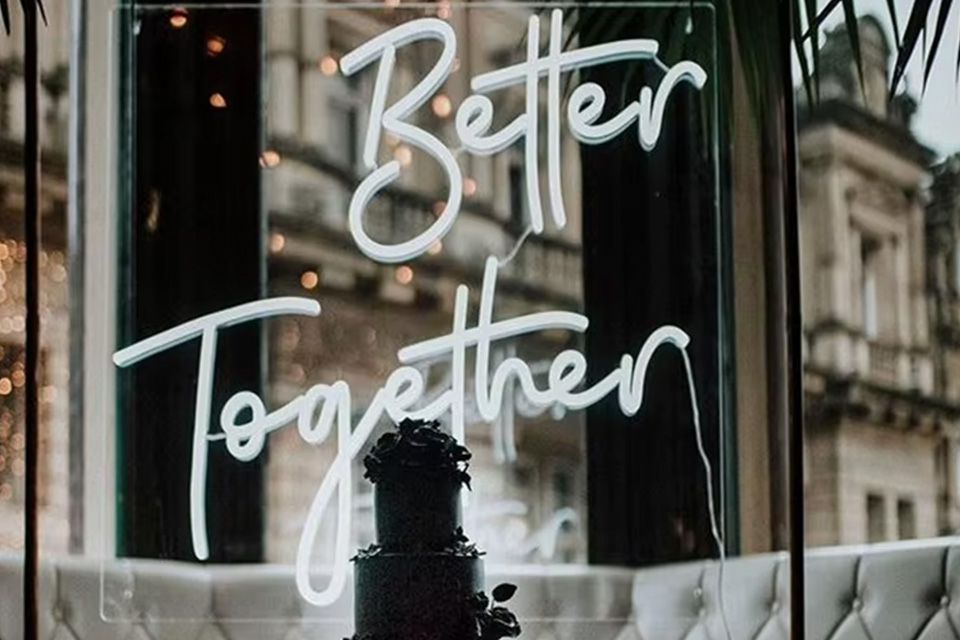
Conclusion: Key Takeaways
Here are the 10 most important things to remember about LED neon and its advantages over traditional neon signs:
- LED neon is significantly more energy-efficient than traditional neon.
- LED neon offers long-term cost savings due to its lower energy consumption and maintenance.
- LED neon is more durable and weather-resistant, making it ideal for outdoor use.
- Custom LED neon allows for greater design flexibility and creativity.
- LED neon is safer to install and operate due to its low voltage.
- LED neon has a longer lifespan than traditional neon.
- LED neon is a versatile option for both commercial signage and home decor.
- LED neon helps businesses stand out with eye-catching, customizable signage.
- LED neon is an environmentally friendly alternative to traditional neon.
- LED neon is rapidly becoming the preferred choice for illuminated signage due to its numerous advantages.

